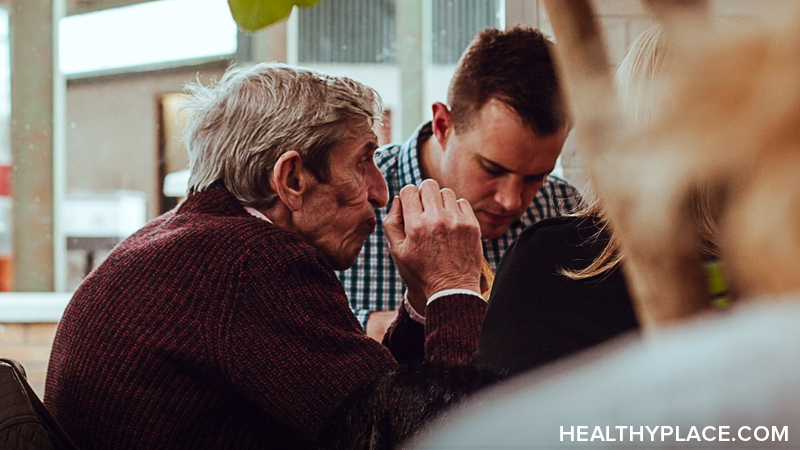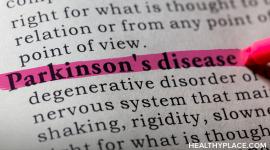What’s It Like Living with Parkinson’s Disease?

Whether you've just been diagnosed with Parkinson’s Disease (PD) or you know someone who has, you may wonder what it's like living with Parkinson's disease. Life with Parkinson's disease can be hard to imagine unless you have experienced it. In addition to motor symptoms like tremors, rigidity and slow movement, people with PD may also experience sleep disorders, mood changes, and relationship issues. Here are some of the main challenges of the condition, as well as tips to boost your quality of life or help someone living with Parkinson's disease.
Living with Parkinson’s Disease: What You Should Know
Living with Parkinson's disease can be unpredictable and difficult for others to understand. Someone with PD may look normal from the outside but be suffering pain, fatigue, and depression on the inside.
Whether you’ve recently been diagnosed with PD or you know someone who has, here’s what to expect from life with Parkinson’s disease:
Pain is often unpredictable
People with PD say that it is hard to make plans because the pain can be so unpredictable. The physical symptoms of Parkinson's disease can also be exhausting, so someone with PD may be able to socialize and live fairly normally on one day and not another.
Parkinson's is more than a movement disorder.
Because tremor is the hallmark symptom of Parkinson's disease, people may not understand the effects it can have on a person's life. Patients often report that the non-motor symptoms of Parkinson's – such as depression, sleep disorders, fatigue and problems with memory – are more debilitating than the movement-related symptoms.
Depression is common
Over 50% of people living with Parkinson's disease will experience depression. This is thought to be due to the chemical changes that take place in the brain, as well as the physical and emotional impact of living with PD. Certain lifestyle changes, alternative therapies, and antidepressant medications can help relieve symptoms of depression.
Parkinson’s disease is a progressive illness
Parkinson's disease is chronic and progressive, meaning it cannot be cured and the symptoms intensify as time goes on. Someone who has just been diagnosed with PD may have a few notable symptoms. This might be because their condition is well-controlled by medication, or they might be in the early stages of Parkinson's.
Parkinson's often leads to dementia.
Parkinson’s disease leads to dementia in around 50% of cases. This is one of the reasons why someone with Stage 5 Parkinson’s disease might need round-the-clock care.
People with Parkinson's are often hopeful and positive.
People assume that patients with PD are elderly and bedridden, but this isn't always the case. 5% of people with Parkinson's are diagnosed under the age of 60, and some are as young as 30 or 40. Most people in the early stages of PD live relatively normal lives, and many are proactive and upbeat about their condition despite its challenges and setbacks.
5 Tips for Living with Parkinson’s Disease
The challenges of living with Parkinson's disease often go misunderstood. Therefore, if you're living with Parkinson's disease, it's important to educate yourself about the condition, so you know what to expect and when to ask for help. Here are some tips to help you live better with Parkinson’s disease:
- Stick to your medication schedule – write it down or keep a diary if you have to
- Establish a daily routine to keep your medications, mealtimes and sleep cycles on track
- Relieve stress – practice yoga, meditation or mindfulness to keep stress at bay
- Get regular exercise to improve your balance, flexibility and mental health
- Maintain a healthy, balanced diet that’s high in fiber and low in processed foods
- Follow your body’s signals – take a break or rest if you feel low on energy
- Establish a rapport with a specialist and attend regular medical appointments
- Make sure you have a support system – whether that’s your family, a group of friends or neighbors or a Parkinson’s support group
- Don’t be afraid to ask for help from your loved ones or carers
- Take up a hobby that takes your mind off your symptoms, such as painting, journaling or gardening
Living with Parkinson’s disease comes with many challenges. If you have just been diagnosed with PD or you know someone who has, it’s important to educate yourself about Parkinson’s so you know what to expect. If you have any questions, you can consult your doctor or call the National Parkinson’s Foundation helpline at 1-800-4PD-INFO (473-4636).
APA Reference
Smith, E.
(2022, January 27). What’s It Like Living with Parkinson’s Disease?, HealthyPlace. Retrieved
on 2025, December 25 from https://www.healthyplace.com/parkinsons-disease/information/whats-it-like-living-with-parkinsons-disease



